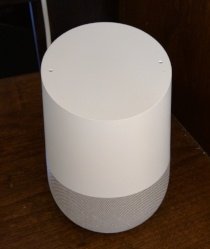Smart Home? Yay Or Nay
Smart homes, and what is called the ‘Internet of Things,' an interactive group of electronic products, is finally maturing into a full-blown consumer trend. Sales of home automation systems are likely to be around $44 billion in 2017.
So, is it time for you to jump on the Smart home bandwagon?
Before you decide if it is time for you to have a Smart home, you should understand the benefits.
Did you ever get into your car in the morning, only to wonder if you have locked the front door? Or got a mile down the road and realized you left your garage door open? When you're not home, do you sometimes get these nagging little doubts-- “Did I turn the coffee maker off? Did I set the security alarm?”
If you have ever had such worries, a smart home may be the answer to at least some of your prayers.
Smart home refers to homes that have appliances, lighting and electronic devices that can be controlled remotely from any location in the world by phone or internet, often using a mobile app. Smart home-enabled devices can even communicate to each other and operate in conjunction with each other via a hub or other device.
So, what are the devices that make a home smart? The answer may surprise you. You can control almost any of your everyday electrical appliances like refrigerators, washing machines, dryers, toasters, ovens, heating and air conditioning units and even lighting devices by a smart home system. Other examples include devices like audio and video entertainment systems, camera and security systems, computers, laptops and numerous other electronic devices.
The purpose of a smart home is simple - provide comfort, convenience, safety, and energy efficiency (and cost savings) at all times, regardless of whether anyone is at home or not.
Here are some of the many benefits of a smart home:
Better security
Using a smart home security system will allow you to remotely monitor the security status of your home even when you are away – at work or on vacation. Motion sensors will trigger an alert notification on your mobile device if an intruder is detected on your property. Your doorbell will allow you to see, record, and interact with whoever is at your front door, whether they ring the doorbell or not. Video cameras will show you that the kids are ok. A smart fire alarm can inform you if the smoke detectors go off. You can even switch on and switch off electrical or electronic devices, lock or unlock doors remotely using your smart phone.
Comfort
Customize your home atmosphere to suit your mood or desire. The home automation system can choose the right lighting and temperature settings for each room of your home. Having everything you need to run your home at your fingertips can be the ultimate indulgence. Turning up the heat in your house, or turn on the outside lighting can be done remotely or can be pre-programmed. Now you don’t ever have to come home to a dark house. Your front door can automatically open when you approach and lock behind you. You can even set your blinds to automatically open and close. Now that’s luxury.
Energy And Cost Efficiency
Since all your devices are connected, monitoring your energy usage and costs has become easier. Frequently, these devices have energy saving functions that automatically control the amount of power used. Many smart lighting products have built-in motion sensors that switch on lights when you enter a room and turn them off as soon as you leave.
Looking at the three main advantages--Safety, Comfort and Cost savings, it makes sense to at least consider some of the ‘smart home’ options. These home improvements don’t have to be implemented all at once. A homeowner can add these items individually over time, so the cost isn’t exorbitant.
The best part is, it will increase your home's value considerably.
Now that you know some of the benefits of owning a Smart home, let’s look at what you need to do to make your home smarter.
1. The right products for your home/situation: There are several products available in the market today. Choose the right one for you depending on your need and budget. Make sure that you go through the customer reviews before you invest in a product.
It’s crucial to take your electrician’s advice – especially if you are adding smart devices to your existing home, rather than buying a ready-to-occupy Smart home.
2. Safety first: One of the most important things to consider while going for a Smart home is, whether or not your current panel can handle it. Whether you are getting the wiring done for a new home or rewiring an existing home, it's crucial that it installed safely – both from a safety and from a cost savings perspective.
Remember, there are numerous home automation products in the market. Although each will come with a warranty, it’s up to you to protect your house from any electrical issues or mishaps. A good electrician will help you with the right kind of electrical infrastructure required to safely and efficiently install all your new smart devices.
So, now that you know a few things about Smart homes, you may want to consult with a good, local electrician and start enjoying the benefits of owning a smart home. Remember a Smart home is no longer the figment of a sci-fi author’s imagination, it’s the new reality, and can provide a better life for you.
RSB Electrical offers electrical appliance wiring, porch light installation, chandelier installation, and smoke detector installation services in Mesa, AZ. We also specialize in outdoor lighting installation, electrical retrofitting, and new home wiring. Call 480-485-4284 for more information.




